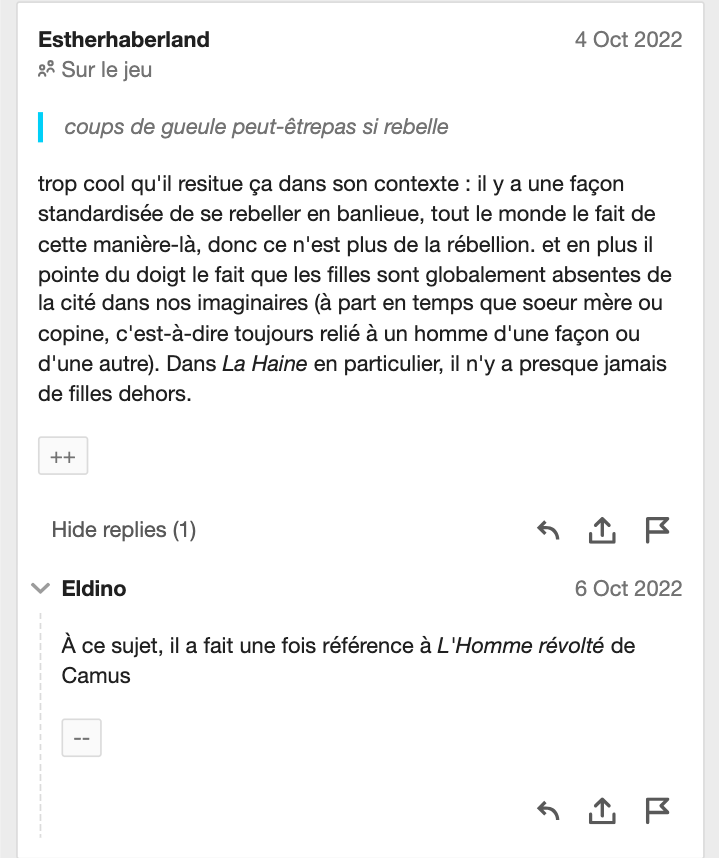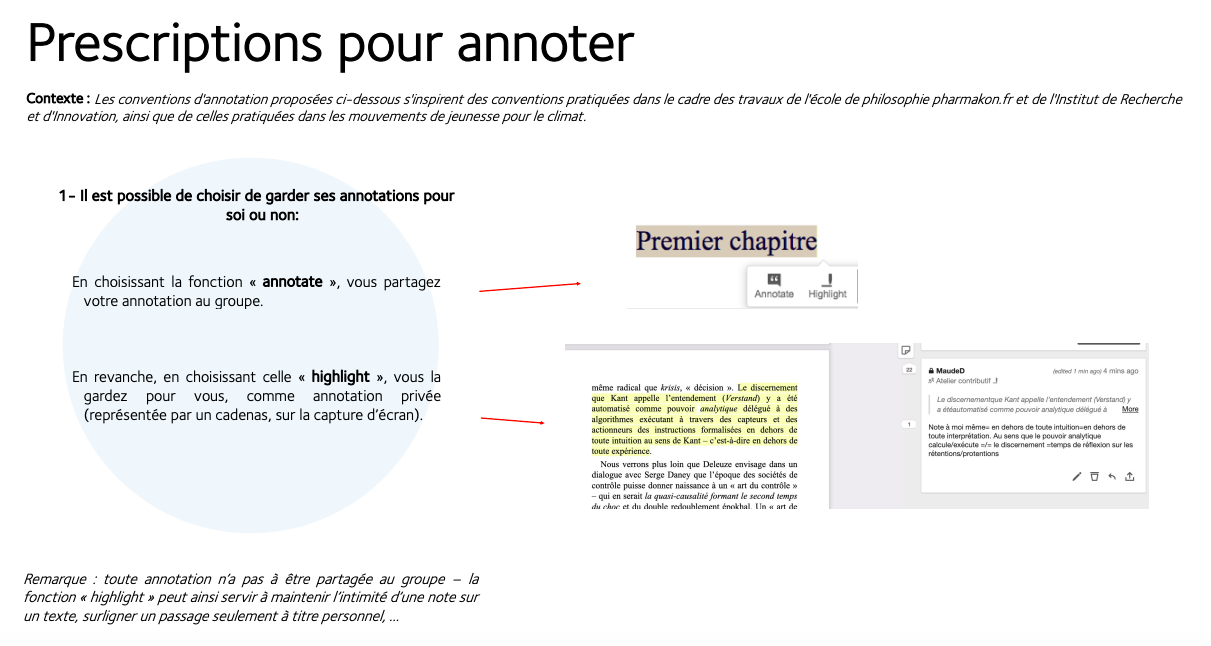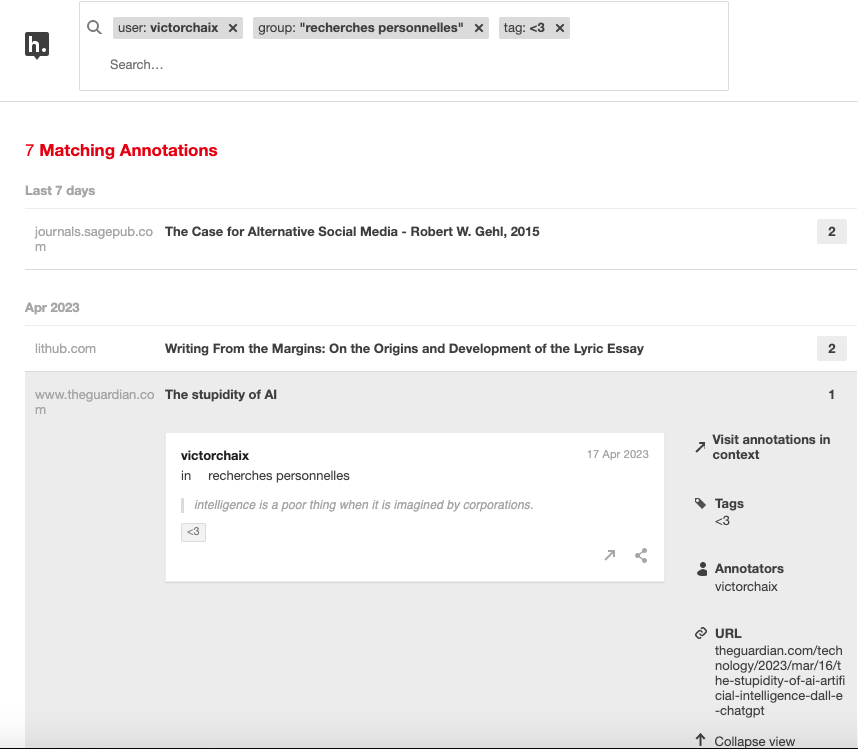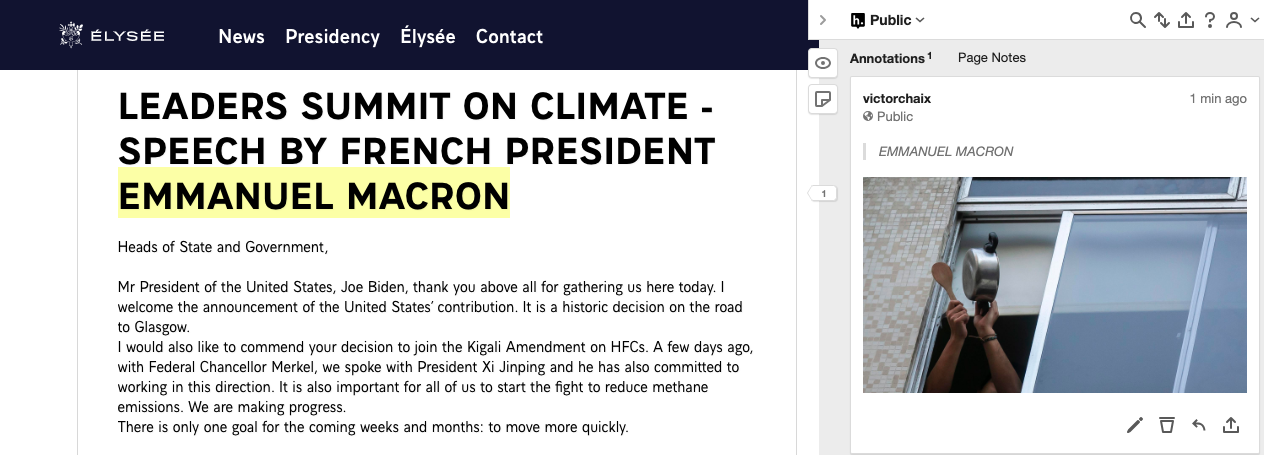[…] an infinite game, through which tools become games that instrumentalize a world that in turn becomes the instrument of a pleasure that can then construct a desire: the desire for a world always to come, in constant transformation, infinitely open, and that would be the play of a threefold process of psychic, social and technical individuation. Bernard Stiegler, Pleasure, Desire, Complicity (2015)
Once upon a time, some groups of friends and colleagues experimented with unfamiliar ways of using the web as a means for collective discussions, through the interpretation of textual materials. This is the kind of unknown story, one of which has taken place far away from the spotlights of the platforms – in the intimate secrecy of online communities of amateurs. Amateur, in French, comes from aimer (to love) and in this case, it was political philosophy in its broad sense that we loved, and shared as a sort of disinterested interest.
Drawn in from various backgrounds by the philosopher Bernard Stiegler as part of different projects, we did not only discuss politics and philosophy in Parisian café terraces. We took what was to become our shared memories and their batch of anticipations back home, to continue to individuate together via textual and computational means. For groups that came to be scattered around Europe, especially during the COVID period, these collectively individuating practices of online spaces came to be crucial to nourish the links that were so abruptly suspended by lockdown, and challenged by Bernard Stiegler’s death.
Our digitally and textually-mediated conversations were made possible through the web annotation tool Hypothes.is: a discreet browser plugin escaping the confined spaces of social media platforms to extend to the totality of the World Wide Web’s pages (at least, the ones available in open access). A ‘layer over the web’, as they call it in this very enthusiastic, Californian-advertisement-style video, which will better convey the original ‘dream’ that this tool tries to realize:
What is Hypothes.is?
It would be complicated to summarize here all of the functionalities, history and workings of this tool. Most of it is documented on their website. It is based on the preliminary reflections of the W3C Web Annotation Working Group and was founded in San Francisco by Dan Whaley, in 2011, as a non-profit organization. The initial release of the ‘basic working prototype’ was made in 2013. Up until today, there are still bug fixes made by the Hypothes.is community, with all of the major forks and changes documented here. Annotations seem to be mainly stored in a data center in the US, with some exceptions.
If we listen to Dan Whaley this moment of a presentation he gave, during the Personal Democracy Forum of 2013 in New York, and recounting the words of Marc Andreessen: ‘only a handful of people know that the big missing feature from the web browser – the feature that was supposed to be in from the start but that did not make it – is the ability to annotate any page on the internet with commentary and additional information’. A couple of years later, on the 23rd of February 2017, the W3C published its recommendations to normalize and support web annotation; an event which, according to the Hypothesis team, was a major step to make annotation a ‘native’ feature of web browsers.
Hypothesis is not just an additional tool: it is an attempt to fulfil an unfulfilled promise of the web, through the addition of a plugin built to be functional in the long term. Its principles are worth some attention, such as its community moderation principle in which, from the bottom-up, annotation group creators are responsible for hiding annotations flagged/signaled to him or her by the other members of the group. Another interesting principle concerns the ‘merit’ of contributions, which aim to be based on ‘track records’ of the annotator, rather than being evaluated through ‘likes’ (and its unwritten algorithmic rule of ‘the rich get richer’ that we know all-too-well, in dominant social media platforms).
Our Stieglerian Adoptions of the Tool
Though very modest, our different experimentations and re-workings of the Hypothesis annotation tool are able to display an alternative configuration of online discussion and interaction with content, in comparison to the consumerist and impulsive dynamics favored by Twitter and the like. Let’s dive into some of them directly and engage a bit with their theoretical background.
In a recent seminar, Harry Halpin argued that in Bernard Stiegler’s perspective (both worked together for many years on Social Web projects), annotation represents the very way human thought develops: through an engagement with externalized memory. This engagement becomes all the more feasible, in the present digital condition of memory – and urgent. To go beyond the state of ‘symbolic misery’ Stiegler wrote about (typical of the analogic, and continuous flux of television media), we should design the appropriate digital interfaces and tools for receivers of content to become contributors to it. Annotations, as such, go beyond the mere ‘consumption’ of content, and represent an individuating appropriation of it.
Bernard Stiegler and Vincent Puig thus developed and launched the tool ‘Lignes de Temps’, at the Institut de Recherche et d’Innovation (IRI), which was built for the annotations of video content – especially conferences and classes. As for textual annotations, still at the IRI, Yves-Marie Haussone and others developed a new and local version of the Hypothes.is tool, known as ‘Hyperthesis’. Eventhough both tools have now many dysfunctionalities, due mainly to the constant revision of browser frameworks, these constitutive experiments and tools represent valuable ‘proof of concepts’ and have had their days of practice, at least within the IRI’s circles and its collaborators.
Enlarge

As you can see from the annotation protocol above, there has been four meta-categories for annotation: ‘important’, ‘key-word’ – the latter annotation that, when made, automatically generates an entry in the glossary, linking to annotated content(s) – ‘commentary’ and ‘trouble’. This last category has a particularly important philosophical stake: according to Stiegler, it should be used when the content surprises, comes counter to preconceived ideas. Being in trouble is a philosophical (and political) imperative of putting our preconceived ideas into question. This annotation category can also be used when, as a reader, ‘I don’t understand nothing, however I understand that it is a bother that I don’t understand’.
This meta-categorization ‘remains to be completely invented’, perhaps even in an open and contributive way.1See this seminar in French about contributive categorization, or this ‘proof of concept’ of a GitHub-based collaborative category editing, negotiation. Giacomo Gilmozzi, at the IRI, was a crucial actor in annotating and encouraging different collectives to use the annotation tools developed by the IRI. He thus created an Hyperthesis annotation group for the ‘Thunberg Generation’ group, a couple of days before the first COVID lockdown, which constituted my first experiment of the tool.
Enlarge

Though we were not scholars, in the ‘Thunberg generation’ group 1.0, we felt a certain desire to archive, through our annotations, some meaningful textual fragments drawn from online articles and digitized texts, both for ourselves and for our group. The tool provides a centralized page to find all the annotations to which we have access:
Enlarge

It is in 2022, in fact, that our genuine appropriation of the Hypothes.is tool took off: through a small group of the Association des Amis de la Génération Thunberg (AAGT), launched by Riwad Salim and Matthieu Nucci, and via a ‘contributive reading workshop’ organized by Organoesis, on the text La Société Automatique of Bernard Stiegler, that we wanted to interpret and decipher together. Retrospectively, we could say that our digital social reading took off mainly thanks to the choice of using the original and updated version of Hypothesis.
Enlarge

In the AAGT group, of which the common topic of interest are ‘games’, we have first agreed on an annotation protocol (that you can see specified in the screenshot above), for every text. Considering our textual annotation experiments as games between ourselves, we needed to provide some rules to follow: here, it was annotation tags that constituted them. Those ‘arbitrary rules’ were agreed between each ‘player’ of the game, ‘within a complicity’ of a con-vention, would have said Stiegler, which allowed a ‘con-venir’ (word that, in French, implies ‘coming together’). The texts themselves are freely proposed and agreed by the members of this intimate group, in a complicit desire for a new game.
Enlarge

In the contributive reading workshop, we collectively read and annotated chapters of La Société Automatique in between multiple sessions, each of which was dedicated to a specific chapter. This allowed us to engage in a preliminary discussion, which we could then take further during the workshop sessions, or just enjoy as a more intimate discussion and interpretation of the text – and its troubling ideas. Sometimes, indeed, an annotation sparked a long thread of collective discussion:
Tags served an important function in our collective reading. ‘Key-word’ annotations allowed us to navigate with ease in the long chapter, to perceive which pages talked about which main idea or concept (a sort of collaboration between readers, in the laziness of their scrutiny). The use of the tag ‘trouble’ was sometimes used as a call for help, so that other readers/friends could contribute, through their interpretations, in clarifying a notion, an idea or even a relationship between apparently separated phenomena. However, here, what is relevant is not necessarily ‘truth’, as such, but rather the ‘process of mutual recognition’ or ‘dance of recognition’ which Ganaëlle Langlois talks about: it is ‘not about perfect understanding, but it is about the tense navigation between sameness and difference’.
Most importantly, these experimentations were favored, especially in the case of larger groups, through the constitution of a guiding document. With Maude Durbecker, we clarified each of the different tags’ meanings/uses and suggested some beneficial ways to use the tools’ functionalities, in a document we called 'guide à pratiquer' ('a guide to practice'). Rather than being a mere ‘user manual’, indeed – implying that we should adapt to the tool, as consumer-users – we thought of providing some ‘prescriptions’, in order to encourage certain practices of the tool and of our annotation meta-categories.2If you want to take a look at this document, in French, it can be found here
Enlarge

Finally, I must mention that I use the tool for my own research, annotating web contents directly to my private group ‘recherches personelles’, in which I can centralize important and meaningful textual fragments I have read here and there on the web. The Hypothes.is interface is, by the way, very useful, to retrieve the exact annotations I am searching for, according to the tag, for instance:
Enlarge

What is Missing?
Of course, this is just a brief snapshot of the tool, as well as what we have made of it in our collectives or individually. I believe that most of its potentialities still need to be discovered or created, as this annotation layer over the web invites us to enriching relationships with web contents or digital texts and in the end, with each other.
There are a couple of extended functionalities and practices we could think of, for this tool. For instance, the re-orientation of annotated fragments to specific ‘drawers’ of a collective digital library, or even to ‘channels’ in discussion forums, where they can constitute the precious initial material for a debate and/or an appropriation.
In the meantime, we can also engage in a form of activist (mis)appropriation of the tool, by annotating on the ‘public’ layer of Hypothes.is with some counter-propaganda messages:
Enlarge

As no website, that is not behind a paywall, can forbid the Hypothes.is annotation tool to add its interpretative, contributive layer over it, we might as well fight through it the many forms of rhetorical manipulation or bullshiting we read on the web – collaborating between humans in their unveiling, through this supplementary layer that just waits to be seized 🙂
Digital Social Reading (and Writing)
Digital social reading, in general, is this activity by which annotations, commentary, discussions are encouraged on the expandable margin of a digital document, and through this specific feature of the internet which allows a same document to be seen and modified, simultaneously, from different places.
Through this activity, we can encourage an individuating interaction with the web, rather than an isolating and passive consumption of its content. Individuation, here, is always at once an individual and collective process, and never reaches an end-point as such. If this individuation concerns not only human readers but also the annotated-texts themselves, we could speculate on the possibility for making our collective annotations the mid-way versions of further texts – transmuting in this way the marginal into the central. Through the selection made via our annotations, we could indeed make texts live again by bringing this selection into a collective rewriting enterprise, in which we would juxtapose the fragments.
Does experiments like this, in digital social reading, represent an emergent form of reading and writing, for the digital medium? As Bob Stein argued in this video, the ‘social text’ is probably the most promising textual feature of the digital. However, if we look at history as to the evolutions in reading and writing forms, in relation to the change in their material support, there has been around three centuries separating the invention of the printing press by Gutenberg and the taking shape of the novel, as a recognized and valued genre.
The pace of techno-social evolutions and the stakes are quite different today than they were in the 15th century, however. Social Media, that bypasses ‘the continuous movement from failures to repairs that is at the basis of healthy processes of recognition’, as Ganaëlle Langlois puts it, should be abandoned, in favor of Hypothes.is kind of social games: games that develop ‘the capacity to negotiate sameness and difference, while at the same time formulating the relationship between “I” and “we”’.
—
Victor Chaix is currently a Master student in Digital Humanities, at the University of Bologna. Interested in philosophy and the semiotics of online information architectures, he has worked both for an online newspaper and within projects launched by Bernard Stiegler, while he was in Paris. He currently prepares his Master’s thesis at the INC, theorizing and experimenting new possibilities for the ‘digital social text’. He is also a founding member and vice-president of the Association des Amis de la Génération Thunberg (AAGT).
A special thanks to Sepp Eckenhaussen for having invited me to write this article, and for all of his guiding questions 🙂
—
Reference List
Jeff Jarvis, The Gutenberg Parenthesis, London: Bloomsbury, 2023.
Ganaëlle Langlois, Meaning in the Age of Social Media, New York: Palgrave Macmillan, 2014.
Bernard Stiegler and Dan Ross [trans.], "Pleasure, Desire and Complicity" (2015). Online here.
Bernard Stiegler, Symbolic Misery. Volume 1: The Hyperindustrial Epoch, Cambridge: Polity, 2014.
